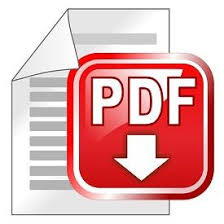Location:
PMKI > General
& References > Retired Papers.


- Organizations & Governance
- PMBOK Knowledge Areas
- Project Controls & Scheduling
- People Skills and Advanced Project
Management
- Industries, General &
References
- Project Management History
Papers in this section focus on the way organizations interface with and benefit from project, program and portfolio management, including both a general management and a governance perspective.
Governance systems & the oversight of Project Delivery Capability
The structuring and oversight of the organization’s capability to manage its overall portfolio of projects and programs including the interaction between project management systems and the organizations overall management and governance systems. Click through to our current governance papers
PP: The six functions of governance.
Replaced by WP1096.
PP: Effective Project Governance – A
Cultural Sea Change!
This paper references 3 KPMG reports - PDF versions of the
reports are available for download
- Download
KPMG 2002 Survey - Executive Summary
- Download
KPMG 2002 Survey - Report
- Download
KPMG 2003 Survey - Asia Pacific Update
- Download
KPMG 2005 Survey - Summary
- Download
KPMG 2005 Survey - Report
PP: Effective Project Governance – The
Tools for Success.
PP: Effective Project Governance – Linking
PMI’s Standards to Project Governance.
PP: A Maturity Model That's Right and Ready - OPM3 Past, Present and Future. This paper explores three inter-linked areas. The major elements of the OPM3: knowledge, assessment and improvement. The main aspects of the OPM3 business model: assessment, consulting, training and benchmarking. The enhanced functionality provided by the OPM3 ProductSuite (supported by certified assessors and consultants) in; assessing an organizations maturity, planning a path to improvement and measuring the effectiveness of the improvements.
Prs: OPM3 and the OPM3 ProductSuite.
Prs: A Simple View of ‘Complexity’ in Project Management PPT. PowerPoint presentation - see updated main paper.
Prs: Understanding Programs and Projects - Oh, there's a difference - PPT. PowerPoint presentation - see updated main paper.
Prs: Governing to Create Value: An organizational perspective on effective project management - PPT - PGCS. - see updated Presentation.
Papers in this section focus on core project and program management skills, organized to align with chapters in the PMBOK® Guide, and the PMP & CAPM exams.
Prs: Communicating
for effect – the art of communicating successfully.
Updated, see:
PP: Getting the 'soft stuff' right -
Effective communication is the key to successful
project outcomes!
Papers in this section take an in-depth look at the functions of project controls and scheduling.
PP: Calculating and Using Float [P110] (See G001 for updated version). The concept of schedule float is the creation of the Critical Path Method (CPM) of scheduling in the late 1950s. In the 60s and 70s significant advances ion the concept of float occurred as the ADM scheduling methodology developed. Much of this sophistication has been lost in the intervening 40 years as the PDM methodology gained precedence. How significant is this loss of insight?
Prs: Communication in organisations: making the schedule effective. There is no point working hard to develop a schedule that is not used! Once the schedule has been created or updated, it is its role as a communication medium that can have the most powerful influence on the successful delivery of a project and the skills outlined in this presentation become critical to realizing the value embedded in the scheduling tool.
Prs: Scheduling in a Defence Environment. PowerPoint presentation - see updated main paper.
Prs: Quality in Project Scheduling. PowerPoint presentation - see updated main paper.
Prs: Standardising Quality in Project Scheduling - Toplink. PowerPoint presentation - see updated main paper.
Prs: Risk Attitudes in the Construction Industry - PPT. PowerPoint presentation - see updated main paper.
Prs: P126 The Effective Management of Time on Mega Projects – Why there are so many problems and how to solve them? - PPT Insynch preview. PowerPoint presentation - see updated main paper.
Prs: P126b The Effective Management of Time on Mega Projects – Why there are so many problems and how to solve them? - PPT. PowerPoint presentation - see updated main paper.
Prs: P148 The effective management of time in the 21st Century - PPT. PowerPoint presentation - see updated main paper.
Prs: P152 Resource optimisation – a new paradigm for project scheduling - PPT - ProjectChat. PowerPoint presentation - see updated main paper.
Prs: P152 Resource optimisation – a new paradigm for project scheduling - PPT - PMOz. PowerPoint presentation - see updated main paper.
Prs: P160 Controls Communicate? - PPT. PowerPoint presentation - see updated main paper.
Papers in this section focus on two areas, personal skills and competencies needed by project and program managers, and specialized functions and approaches that go beyond the core project management processes.
Prs: Supercharge Your Project Performance. This 2007 paper explores the phenomenon of the accidental project manager and and describe the project management skills needed for success. It will then outline ways organizations and the Project Management profession can support project managers and help them achieve recognized qualifications.
Stakeholder engagement and management
PP: The Paradox of
Project Control in a Matrix Organisation. This
paper explores the hypothesis that, within complex matrix
organizations, the ‘zone’ between the strategic vision set
by senior management and the projects created to fulfil
it, is a highly complex and dynamic organism.
Note: The published version of this paper is 'The Paradox of Project Control'.
PP: The Paradox of Project Control in a Matrix Organisation (PPT). Powerpoint presentation to support the above paper.
PP: Introducing a Stakeholder Management Methodology into the EU. This paper describes the introduction of the Stakeholder Circle® methodology and software into the European Union by Tiba Managementberatung GmbH.
Prs: Stakeholder Centric Scheduling. Updated, see Rethinking Construction – Stakeholder Management in the Construction Industry [P049]
Prs: Building an International Micro Business in the 21st Century [P056]. This session looks at the challenges and lessons learned in launching our Melbourne based Stakeholder Management business onto the world stage.
DP: Who are your Chapter’s stakeholders really? Ways to define, understand and engage the stakeholder community around a PMI Chapter.
Art: Why Stakeholders Matter (G003). A review of the Terminal 5 opening at Heathrow, Published in The Chief Executive.
Prs: Why is Stakeholder Management so difficult PPT. PowerPoint presentation - see updated main paper.
Prs: SRMM®: Stakeholder Relationship Management Maturity. PowerPoint presentation - see updated main paper.
Prs: Stakeholder Engagement is ‘free’! The Zero Cost of Stakeholder Relationship Management - PPT. PowerPoint presentation - see updated White Paper.
Prs: The Zero Cost of Stakeholder Management - PPT. PowerPoint presentation - see updated White Paper.
Prs: Successful Stakeholder Management - PPT. PowerPoint presentation - see updated White Paper.
Prs: The value of effective stakeholder engagement - PPT. PowerPoint presentation - See SRMM page.
Forensic Analysis: Aspects of project management that are primarily focused on understanding the causes of project issues and problems and/or developing and assessing the implication of issues or problems.
PP: Adjudication Pressurises Project Administration. Some potential options open to construction industry professionals to address and manage the impact of the Acts on projects in which they are involved.
Papers in this section include a focus on specific industries, general references and links to PPP definitions and vocabulary and other useful links.
TBA
Papers in this section look at the origins of modern project management and the evolution of aspects of project controls from 4000 BCE to the present.
Prs: The Origins of Modern Project Management. PowerPoint presentation to VPUG, July 2007 meeting discussing the ways in which management and technological innovations of the 20th century interacted to encourage the establishment of project management tools (particularly scheduling), leading to the formation of PM institutes, which in turn created the profession of modern project management. The full published paper is in the PMKI History section.
Prs: Trends In Modern Project Management - Past Present & Future. [P061] PowerPoint presentation to Protegic. See our history page for the current versions.
An early summary of Mosaic's history papers is in the article 'A Brief History of Project Management' published in APM Project: Vol 19, Issue 11, June 2007.